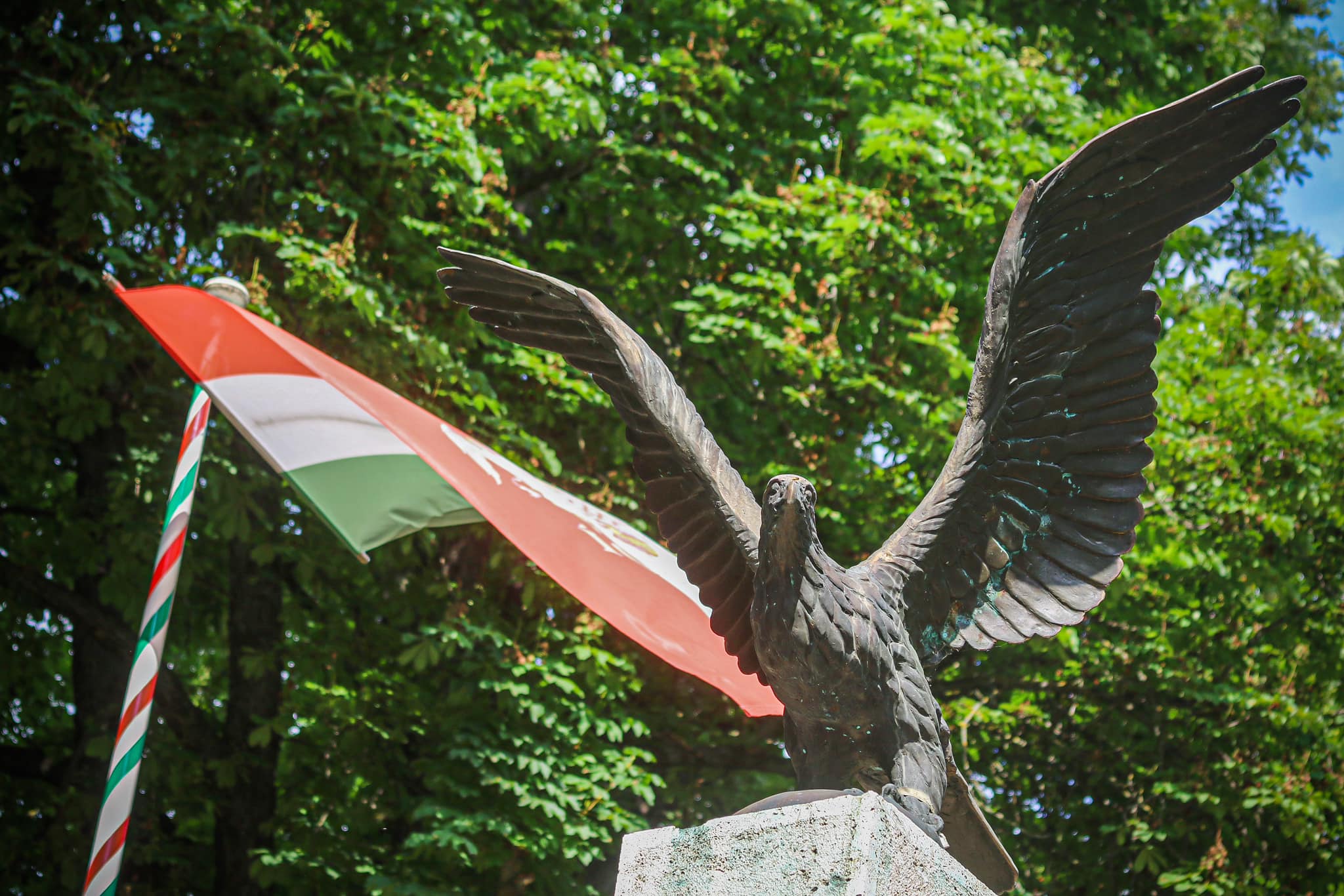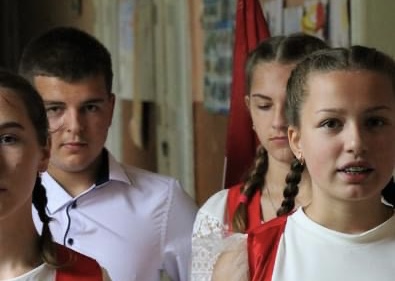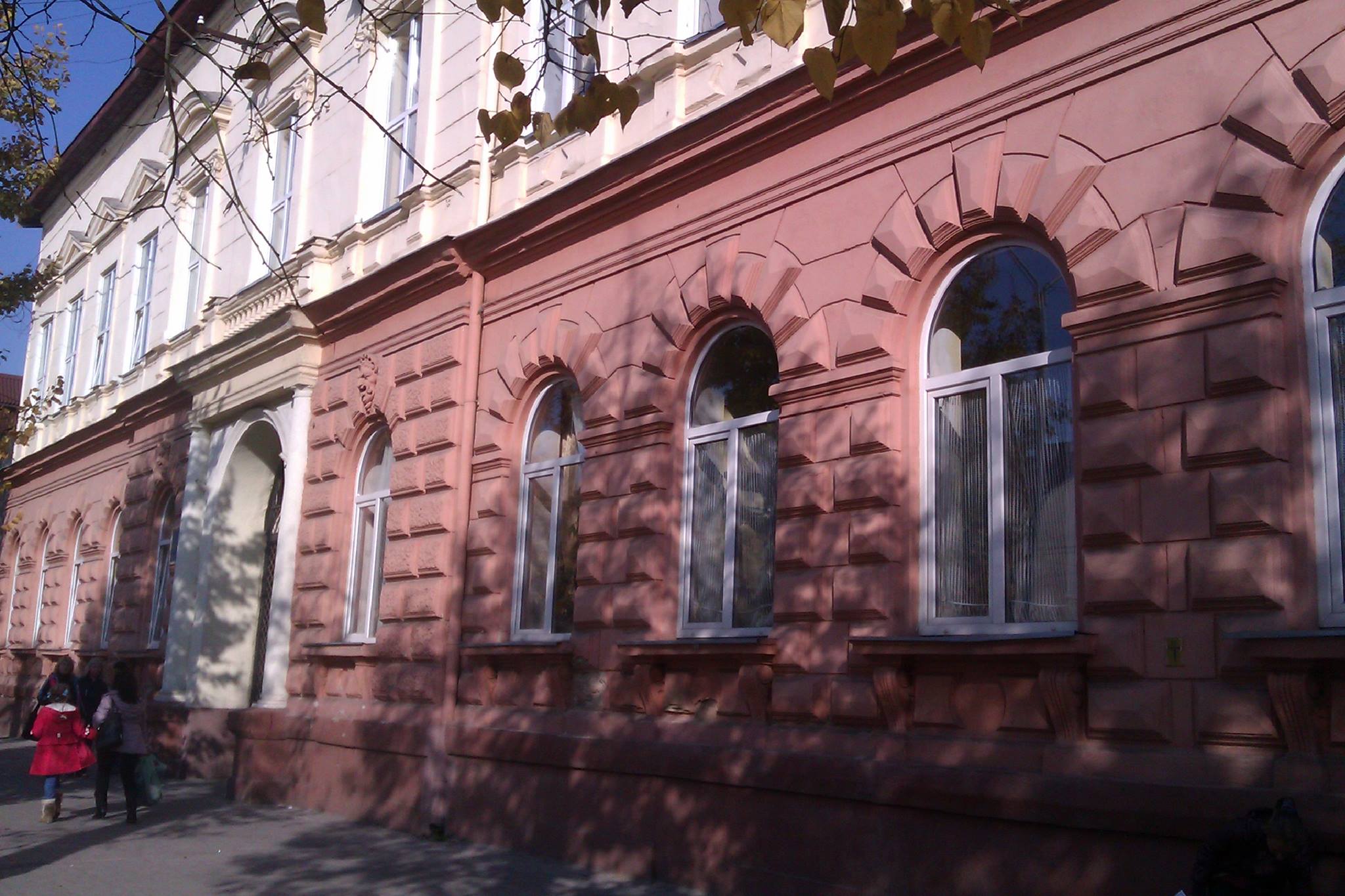
According to Zsolt Németh, the war must not be used as an excuse to restrict human and minority rights.Continue reading

This year, the opening of the school year at the Francis II Rákóczi High School in Mukachevo (Munkács, Ukraine) was significantly different from the long-standing tradition, reported Kárpátaljalap.net. The Hungarian flag was now missing from the building, the Hungarian anthem was not played, and the national ribbon was removed from the bell. Moreover, the Hungarian headmaster of the school was recently dismissed from his position.
“I am very sad and I am very indignant that the administration of Mukachevo has created such a situation in relation to the Hungarian school. This cynicism, this aggressiveness is shocking. They want to abolish Hungarian education here, in this beautiful city on the banks of the river Latorca, and very quickly they found the servants, the people who implement this or want to implement it, the commissars always turn up,” said Béla Popovics, a teacher, before the ceremony.

The Francis II Rákóczi High School in Mukachevo Munkács. Photo: Facebook/Munkácsi II. Rákóczi Ferenc Középiskola
As he pointed out, this is the second time that the city council has dismissed former school director István Schink completely unjustifiably. They then appointed a kindergarten director to head the school, who has no professional experience, does not speak Hungarian, does not feel the feelings and values of the Hungarian community, and is simply not a member of the community. This woman very quickly brought in an assistant who also lacks the qualities needed to run a school, he added.
“They wanted to Ukrainianize quickly, but they did not expect the resistance of our collective, this clear resistance slowed down the process of Ukrainianization, but the aim is clear, to close the Hungarian school. Parents enroll their children in this school in the first place to learn Hungarian, and many non-Hungarian parents would like their children to be educated in Hungarian, and these rights are being violated, as is the tradition that has existed for a very long time in the beautiful school in this town, which has a fantastic atmosphere and traditions. And what is shocking to me is that, although Ukraine declares at every level that it wants to be a member of the European Union, and that the protection of minorities is a fundamental value in the EU, what is happening now is reminiscent of the darkest Stalinist times.
The fact that we cannot use our national symbols, that the red, white, and green ribbon is being taken off the bell, that we cannot sing our national prayer, is a shock to us,”
emphasized the teacher.
Outrageous news: The Hungarian national anthem, flag, and colors were banned at the year-opening ceremony of Ferenc Rákóczi II High School in Munkács, Transcarpathia.
Máté Paczolay, spokesman for the Hungarian Foreign Affairs Ministry, stated that this measure contradicts… pic.twitter.com/Y9zH5IYLzZ
— Balázs Orbán (@BalazsOrban_HU) September 2, 2023
At the opening of the school year, former teachers and parents, as well as the school’s teaching staff, were silent as they looked the new management in the eye, expressing their views on the situation in a kind of silent protest.
The new headmistress, Marija Pauk, told Kárpátaljalap.net that the Hungarian community could not exercise their constitutionally guaranteed rights to use the symbols at the ceremony because they were currently living in Ukraine. “The state symbol, the coat of arms, the flag, and the anthem are Ukrainian, so there will be only such flags throughout Ukraine. We only apply the law, we live in Ukraine and use Ukrainian symbols,” she underlined.
Árpád János Potápi, Secretary of State for National Policy at the Prime Minister’s Office, said that what is happening to the Hungarian community in Transcarpathia in Ukraine is unacceptable. He highlighted that the teaching staff and parents had stood in silence with a national-colored candle and a poem by Hungarian poet Sándor Reményik titled “Church and School,” in protest against “the Ukrainianization move.”
The State Secretary recalled that
Hungary was the first country to recognize the newly independent Ukraine 32 years ago. Now Ukraine would “force the Hungarians who have been living in their homeland for 1,100 years to assimilate or leave.”
“We believe that for a country aspiring to join the European Union and NATO, the assertion of Ukrainian identity and the situation of war cannot serve as a basis for the restriction of minority rights undertaken in the Ukrainian constitution and international and bilateral treaties. We expect decisive practical measures from the leadership of the Transcarpathian region and from President Zelensky,” he concluded.
Last December, the Ukrainian parliament adopted a new law on national minorities, which is one of the conditions for Ukraine to start negotiations on its accession to the European Union. However, Hungarian organizations criticized the new law, saying that lawmakers completely ignored constructive proposals previously made by minority organizations. According to them,
the law not only reinforces the restrictions on rights previously codified in the Education and Language Law that was hurtful to Hungarian communities, but also introduces new ones, and it “does not guarantee the preservation of compact nationality settlement areas, nor the use of nationality symbols.”
In connection with that, Foreign Minister Péter Szijjártó said in an interview earlier this year that the government would like Hungarians to regain the rights they had in Ukraine in 2014. “So they should be able to study in Hungarian up to university level, they should be able to graduate from high school in their mother tongue, and they should not have to spoil Hungarian performances in Transcarpathian cultural centers with Ukrainian simultaneous interpretation,” he explained. “The problem is really pressing now, because from September this year, minority schools will practically disappear. There will only be state schools with minority language teaching,” he warned.
Featured photo via Facebook/KMKSZ – Kárpátaljai Magyar Kulturális Szövetség